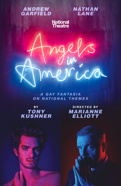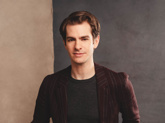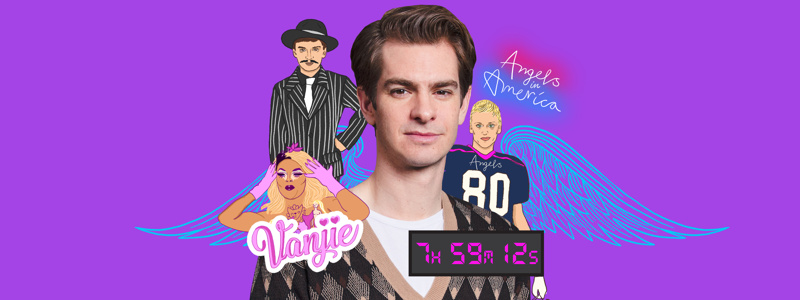
(Photo by Caitlin McNaney; Illustrations by Ryan Casey)
Angels in America Star Andrew Garfield on the 'Privilege and Burden' of Playing Prior, His Drag Race Inspiration & More on Show People
With hailed performances in The Social Network, The Amazing Spider-Man and many more film favorites, a 2017 Academy Award nomination for Hacksaw Ridge and a 2012 Broadway debut in Death of a Salesman alongside the late great Philip Seymour Hoffman, it's no secret that Andrew Garfield is an exceptional actor. Nevertheless, his Tony-nominated performance in Tony Kushner's landmark play Angels in America as Prior Walter is a career high. He leans into his character's fantastical fabulousness just as wholeheartedly as he captures his despair and distress as a gay man living with AIDS in 1980s New York. Garfield stopped by on Show People with Paul Wontorek to talk about this truly transformative stage performance, his absolute favorite guilty pleasure show, his dad's favorite role in his repertoire and more.
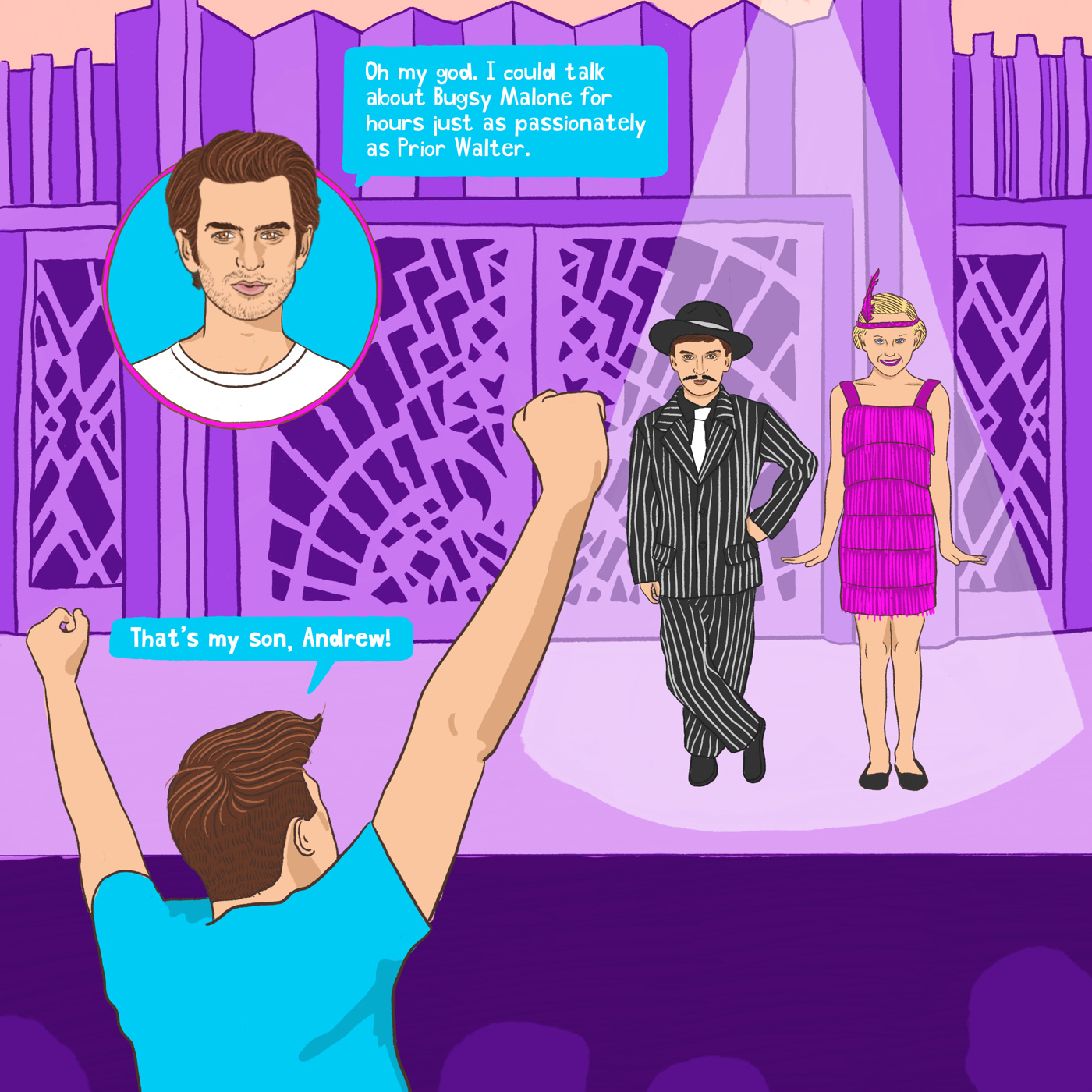
1. WHATEVER, PRIOR WALTER—DAD STILL LOVES HIS BUGSY MALONE BEST
“I could talk about Bugsy Malone for hours. I was 14 or 15 at the time [when I played Fat Sam in a stage musical version]. It was my first time onstage at my local community theater. It was like coming home. Bugsy Malone was a movie that I had seen on a loop since I was probably nine or 10. I know all of those songs by heart. It’s so funny. My dad came to the premiere of this Martin Scorsese film I did called Silence. He said after, ‘Well, it was no Fat Sam, but...’ He came to a few two-show days of Angels in London with my mom, and then they came to opening here in New York. My mom was just a swamp, crying her eyes out. My dad was behind her crying too. He said, ‘It was no Fat Sam, but...’ So that’s been the benchmark since I was a child.”
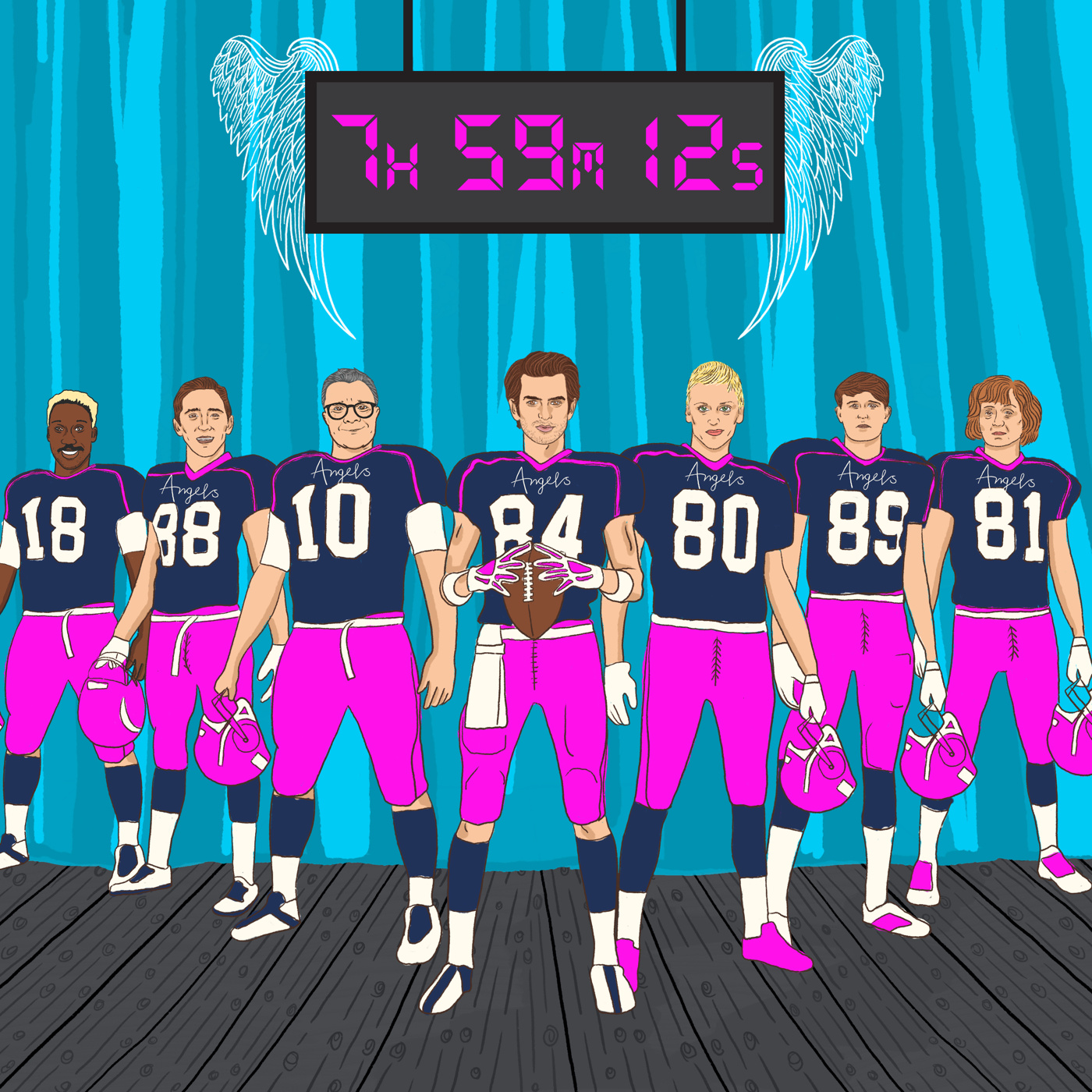
2. ANGELS IN AMERICA—IT’S A SPORT
“Growing up, I loved sport. I still love sport. I love being in my body, and I love being part of a team. I like serving something greater than myself. So of course, that links up to performing in plays. Angels in America is the perfect ensemble for that. It’s a true ensemble. Without any one of us, the ship sinks.”
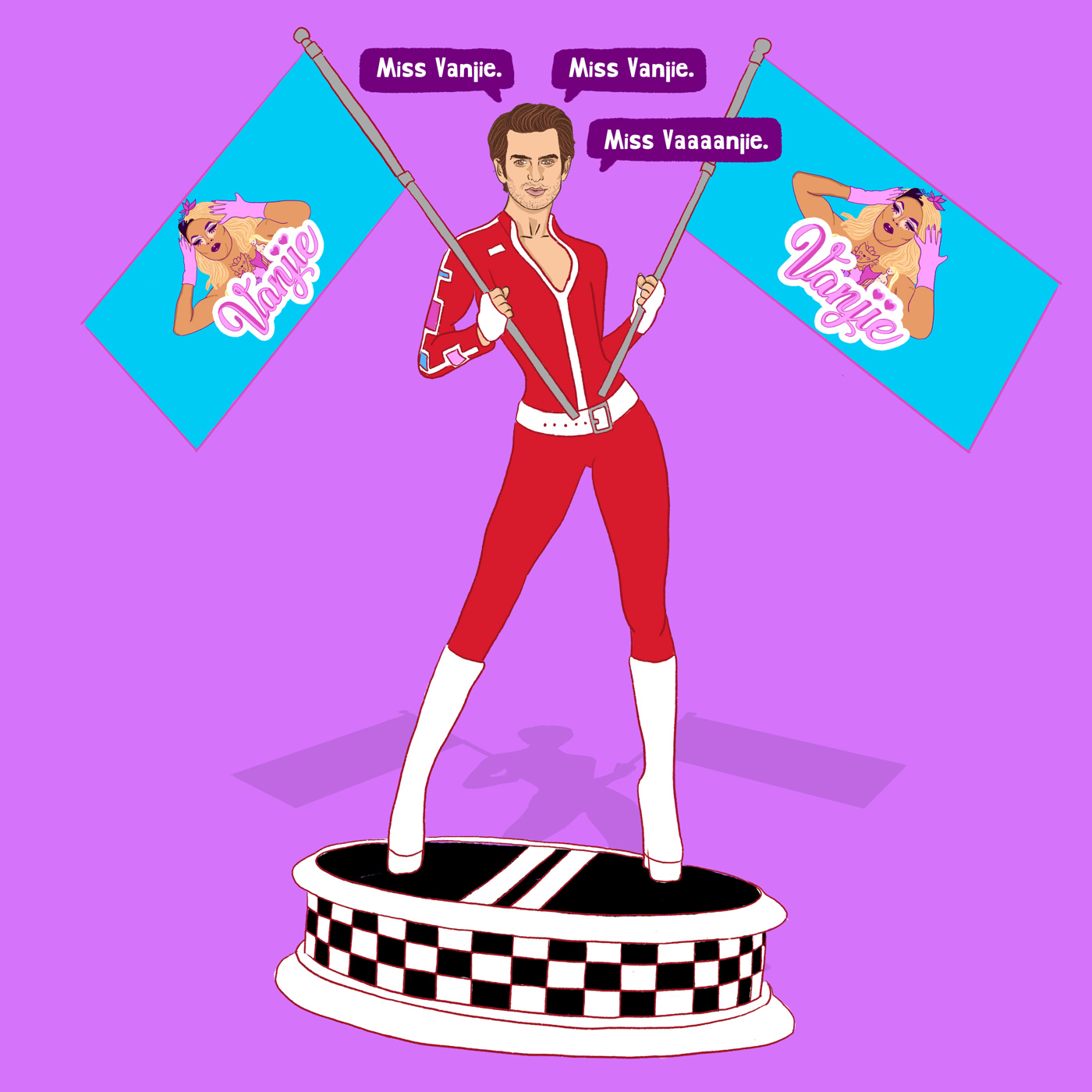
3. HE WORSHIPS MISS VANJIE
“Some days, I get together with my closest friends in the city, and we watch RuPaul’s Drag Race. I was so disappointed to see Miss Vanjie go, as everyone was. That exit is, I believe, one of the iconic moments of Drag Race history. That three times 'Miss Vanjie.' Like, were you taken over by a divine entity? It’s hypnotized the culture.”
Other must-read highlights:
ON PLAYING PRIOR WALTER
“He is this unforgettable, multi-dimensional, hopeful symbol of what we all can be. I think audiences respond to him because he makes us all feel possible. He makes us feel like a life of meaning and a life of fabulousness is possible for each and every one of us. That’s the genius of what Tony Kushner has written. I just feel very privileged that I get to hang out in his skin and organs. Going through the trauma he is facing is how he becomes who he is. I think that there’s something timeless about that journey, about facing your demons. Feeling totally dispensable and not only that, seeing your friends falling away around you—this is an experience that will make you as a human being. How do I begin to honor that, which so many men went through in the time of the AIDS crisis? That’s my privilege and my burden to attempt to make live every night for a fresh group of souls that come to the theater.”
ON TONY KUSHNER
“I’ve had endless questions for him. He thankfully has endless answers, much like his play. He is endless. He is constantly in the conversation of life, of being alive and what we’re doing here. If you want answers, he’s the person to go to. But beware: you will get pages and pages and pages of answers, which is an unbelievable gift for an actor. His mind and his soul and his heart—he’s one of the most brilliant people I’ve ever had the privilege of meeting. I just wanted all of the insight he could offer, not only about Prior and about where he came from in his imagination, inhabiting that time, understanding what it was like to be alive at that time in that community, all the responses to this plague, whether it was responses full or shame or responses full of pride.”
ON GETTING INTO CHARACTER
“To lean into your own fabulousness is something that, as English people, we don’t often allow ourselves to do. I started buying lots of fashion books and beautiful books of old movie stars, icons from the ‘20s and ‘30s and ‘40s and ‘50s and onwards. As a human being, I am much more naturally drawn to the inner life of things, whereas, I think Prior’s access to the world, at the beginning of his journey anyway, is much more through the external life of things, which is a beautiful way to access the world. I was able to steal from the people that I find to be beautiful and fabulous.”
ON HIS FATHER
“I was a clown when I was a kid. So my dad would try and wrangle me into making home movies with him. I owe my father a lot because he sacrificed a lot in order to provide for his family. I think he was very scared when I first realized that I was drawn to something that wasn’t very safe as a profession. He was very resistant at first. He’ll admit to that. It took a lot for him to allow me to go to drama school. He was very scared all the way through. It wasn’t until my first paycheck where suddenly, all of his longing came out. He remembered that his first dream was to be a screenwriter. That was his first dream that he deferred. We are the unmet dreams of our parents, as the saying goes. He came to the Oscars with me last year. We were just giggling to each other. He said, ‘The only person I want to meet is Jeff Bridges.’ I was like, ‘Dad, that’s not the way this works. We’re just happy to be here.’ And then Jeff Bridges sits down right next to him with his wife. He manifested that. I love him dearly. It’s amazing to be able to take him on this journey with me. What a man. I’m forever impressed by my father.”
ON THE HEALING POWER OF THEATER
“I’ve had beautiful moments with film. I really, really have. But home—home is the theater for me. I believe it always will be, as long as it will keep having me. I’ve been changed by movies. I’ve been more changed by plays. I see it as sorcery and magic. I saw Bruce Springsteen do it recently onstage. He was performing, and it was storytelling and singing. He chemically changed everyone in the room. He healed everyone in the room somehow, somewhat. He had shown me who I was, just by being himself.”
ON UNWINDING AFTER PERFORMANCES
“To come down from the show is really tricky. I don’t sleep until about 4 a.m. It’s a full meal. I started watching a TV show called Riverdale. It’s really fun! It's really fun. I really like it. I’m not ashamed. I really, really like it.”
ON HIS POST-ANGELS PLAN
“All of my friends are saying I should do a rom-com. I really don’t know who I am after this. It’s the kind of thing that changes you. It transforms you as a performer and as an audience member. I don’t know who I am yet. I’m really excited to find out.”
Watch the full episode of Show People with Paul Wontorek below!
Interview has been edited and condensed for clarity.
Did you know Show People is available as a podcast? Listen to your favorite stars talk Broadway and beyond on your way to work, the gym, the theater and more on iTunes and Spotify.
